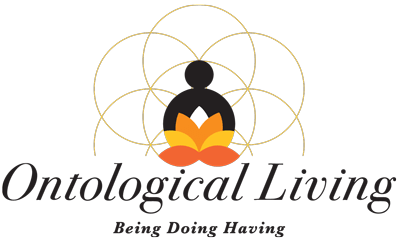Mastery is the Practice of Life-long Learning
In his book “Mastery”, George Leonard describes mastery as “the mysterious process during which what is at first difficult becomes progressively easier and more pleasurable through practice.”
If we maintain well thought out practices designed to develop us into the Self (or other human ways of being) we have intention to become, our practices will reveal surprises that show themselves in our mood and actions. Such on-going practices are the practice of a life-long learning: practicing and observing. From those observations, we incorporate our learning back into our practices, in a continuous practice of learning.
The prevailing bottom-line mentality that puts quick and/or easy results ahead of life-long learning or the practice of mastery is our enemy. This orientation produces a certain shallowness in our relationships and a fierce desire for more information. I am reminded of an old African proverb: “Knowledge is only a rumor until it shows up in the muscles.”
What can get in our way of becoming a life-long learner? As mentioned above, wanting quick and easy results or believing gathering information is the same as embodying in our muscles and tissues ways of acting and being that produce a new Self and hence a more satisfying life.
Mr. Leonard recommends the first step is “learning to love the plateau”. The plateau is that place where we don’t see or recognize our progress. The plateau is also the place where we continue to practice for no other reason than our commitment to accomplish our declared intention or new skills.
It is when we are on the plateau, practicing our practices, that deep, rich learning is happening. Our faith and trust in our practices are called forth as we are not always privy to our learning. Over time, as we settle into our practices, the joy of the practice can emerge. It is not an uncommon reframe of professional athletes and accomplished people other professions – “I get such joy in practicing. I could do it all day.”
As we travel on our path, we begin to notice that we are doing things differently than before: we are able to take actions that were not previously possible. Our improvement may even surprise us. Or, something very unexpected begins to show up in our bodies and hence, our actions. When we continue with our practices with our commitment in mind, the rewards or merit of our practice begins to reveal itself.
One of the critical elements of being a life-long learner is knowing how to learn. If we are focused on getting the result quickly or enjoying the thrill of something new, the plateau will seem intolerable. Assumptions such as, ‘I want it quickly’, ‘I want it my way’, ‘I want what is new and exciting’, ‘I deserve it’, are the antithesis of learning and mastery.
Below are three different ways of being or narratives, courtesy of Mr. Leonard, that can prevent us from keeping our intention on our commitment, practicing our practices and enjoying the journey on the never-ending path called mastery.
The Dabbler
This person approaches every opportunity with incredible enthusiasm. They love the new equipment, clothing and new words and phrases. They are quick to show off their learning and excited to get to the next class. Then the inevitable plateau arrives, and the Dabbler is perplexed. Enthusiasm wanes, lessons are missed, justifications appear. The Dabbler begins to look for the next new thing that will produce that initial rush abandon their commitment.
The Obsessive
This is a bottom-line type person, not one to settle for second best…results are what count and the faster the better. “What book or video should I buy so I can learn this quickly?” is a typical question the student will ask the instructor. They love to ‘pick the brain’ of the instructor. Great progress is made and guess what, they encounter that inevitable plateau and that they cannot accept they are no longer learning at their initial rate. They push harder, paying no attention to the instructor who recommends moderation. Moderation is not in the obsessive’s lexicon. Steep progress is made, then a sharp decline. In the radical ups and downs they can easily get hurt and have to stop. The obsessive style cannot sustain staying the course long enough to discover the joy that can be possible when on a long-term path.
The Hacker
“I’m good enough for a weekend game of golf. No need to keep practicing. I’m good enough.”
This style hangs out with their buddies, who are also “good enough”. There is no commitment to improve. They may even step over critical stages of development; collecting tips vs. developing the embodied skill that comes from sustained practice. This style never progresses past the initial learning.
We do adopt different learning styles for different areas of our life. In some cases, being a hack is consistent with our declared intention. We are settled with our level of skill in a specific area given our other life priorities.
As a life-long learner, one must look to where there might be dissatisfaction or a lack of progress. Are you “practicing” one of the styles above? If so, this is an opportunity to revisit your commitment and reassess. Is this particular area still important enough for you to rededicate yourself to be a life-long learner, on the path of mastery? If so, what adjustment or new practices need to come forward that will enable you to achieve your desired outcome. What we don’t want to do is enable or continue with practices that no longer move us towards our vision.
© 2020 Merle McKinley, Ideal Coaching Global Master Coach and Trainer






